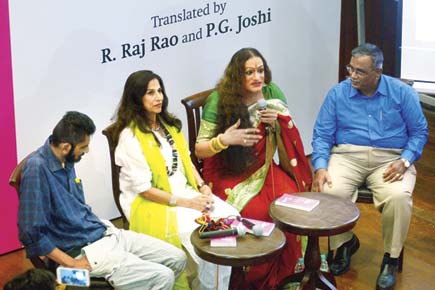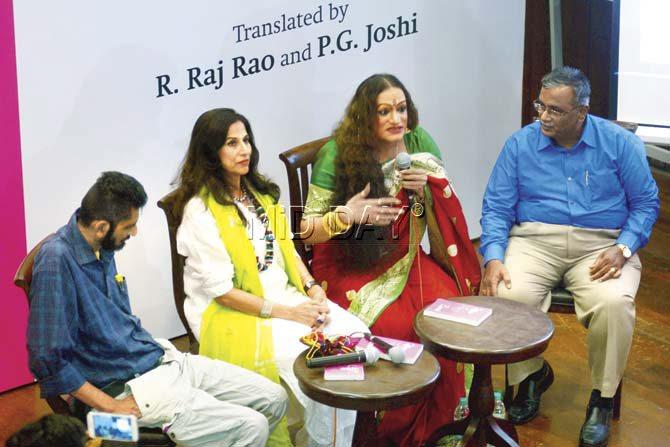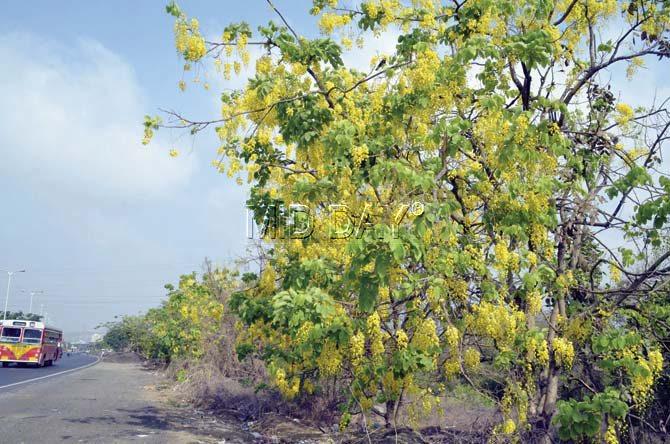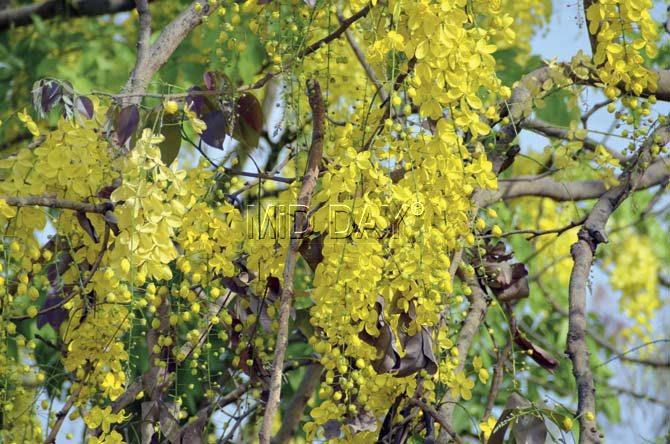The city — sliced, diced and served with a dash of sauce

A literature of their own
On thursday, April 30 at Kitab Khana, Fort all eyes were on hijra activist Laxmi Narayan Tripathi. Scheduled to commence at 6pm, the discussion on the book Me Hijra, Me Laxmi which was recently translated from Marathi to English, was delayed.

(l to r) R Raj Rao, Shobhaa De, Laxmi Narayan Tripathi and PG Joshi at Kitab Khana discussing the book. Pic/Atul Kamble
ADVERTISEMENT
Author Shobhaa De who was chairing the discussion was a good 30 minutes late. She claimed later that her heightened security cover caused her to be late. Translators PG Joshi and R Raj Rao were there with Laxmi, her mother, her chelas as well as the 30-odd people who were waiting for the discussion to start.
Laxmi was overheard saying, “It is my event and yet I am bored. Waiting is something that I don’t like doing.” As soon as Shobhaa De arrived, the discussion started with Laxmi talking about the book. She said, “This is my personal story and I feel it is a landmark one as there is very little literature written about the hijra community.
We generally get written about, but seldom write about our sufferings and life.” Marathi was the language chosen by Laxmi to tell her story as she says, “I am a Thane citizen, and I grew up there. Marathi was the obvious choice as I want the people there to be able to read the book and be educated about our community which is very often stigmatised.”
Laxmi praised her parents for accepting her. Gauri, a fellow hijra who is also a social worker and is Laxmi’s friend says, “I have been disowned by my father. Everyone isn’t as fortunate as Laxmi to get their family’s support. I admire Laxmi for the courage she has taken to write this book and offer people an insight into the hijra world.”
Laxmi adds: “The book speaks about our pain which is thicker than blood. I hope my book creates an inroad for the community and is the first of many more. We have many names given to us, but not even the ‘D’ of dignity,” signs off Laxmi at the end of the discussion.
Painting the town yellow
IT’S summer and the trees have burst into bloom. There’s scarlet, mauve, pink and of course the ubiquitous yellow, everywhere you look. The amaltas or Indian laburnum (Cassia fistula) is particularly striking as the sunny yellow flowers droop down in a “golden shower” as it is colloquially known.

The cheerful blooms can enliven even a ho-hum bus ride, as on this road from Airoli to the Eastern Express Highway. Pics/Shrikant Khuperkar
The trees moreover are not too tall, so nature lovers can enjoy the blooms to the fullest. Amaltas is the state flower of Kerala, and is particularly welcomed at the time of the Vishu festival, which is its blooming period, as yellow is an auspicious colour for this festival.

Moreover, the plant is used in Ayurvedic medicine as a purgative (but unsupervised use is discouraged, as it can have side-effects).
 Subscribe today by clicking the link and stay updated with the latest news!" Click here!
Subscribe today by clicking the link and stay updated with the latest news!" Click here!







